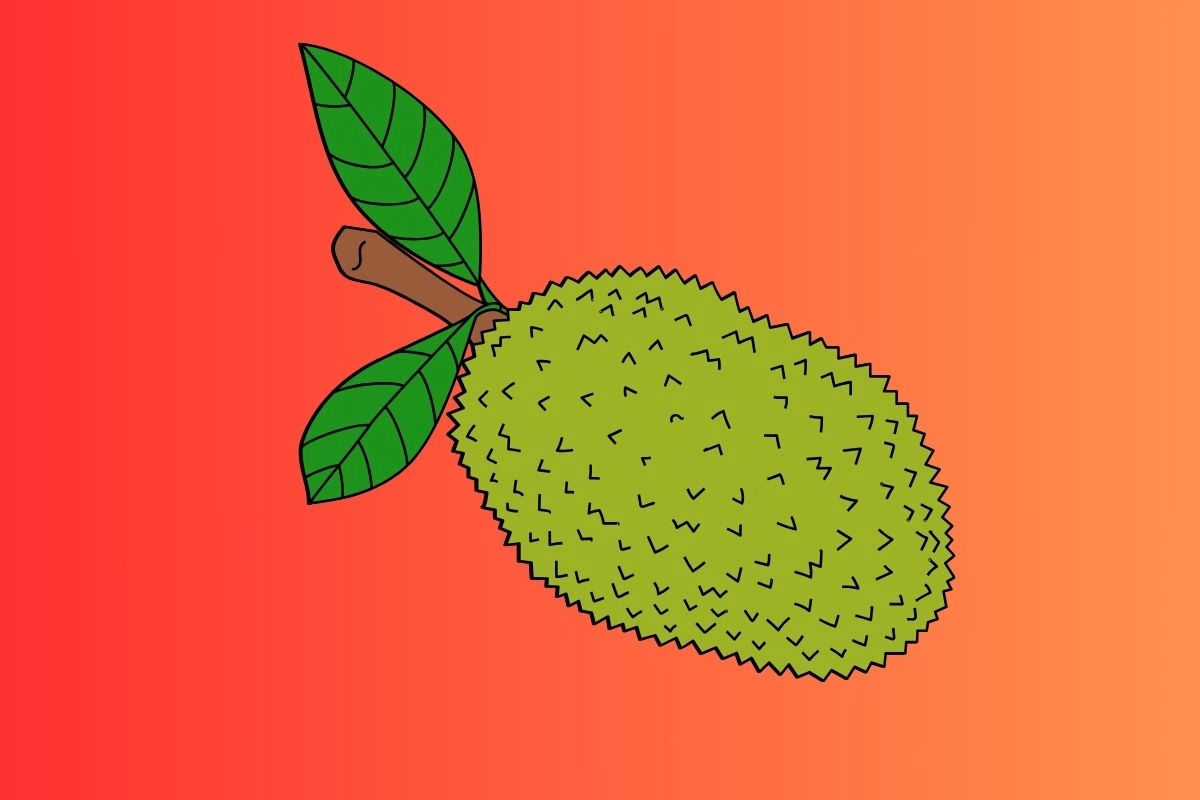
This post dives into the world of “human foods,” breaking them down into categories like fruits and veggies, grains, proteins, and dairy. It’s all about showing how food isn’t just fuel—it’s essential for energy, keeping diseases at bay, and even bringing people together. From carbs and proteins to vitamins and minerals, each nutrient has a role in keeping us healthy and thriving. At its core, the message is simple: a balanced diet isn’t just important—it’s the key to living your best, healthiest life!
Table of Contents
How Do Human Foods Provide Essential Nutrients?
Hey there! Ever stopped to think about what’s actually on your plate and how it fuels your body? The world of “human food” is a vibrant mix of everything we eat, each bite working to keep us healthy and thriving. Think colorful veggies loaded with vitamins to keep your immune system in check, or protein-packed foods that help repair your body after a long day. And don’t forget grains and healthy fats—they’re like the steady energy providers we can’t live without. Add in a few superfoods like berries, nuts, or leafy greens, and you’ve got a recipe for greatness!
Food isn’t just about satisfying hunger; it’s the ultimate tool for powering our bodies, sharpening our minds, and keeping us going strong. Pair that with a balanced diet, and you’ve got all the ingredients for a life full of energy and wellness.
In this guide, we’re breaking it all down—types of food, why they matter, and the nutrients that make them superstars. Let’s jump in and uncover the delicious secrets to eating well!
What is Human Foods? Let’s Break It Down
Ever wondered, “What exactly is human foods?” It’s a term we often throw around, but let’s simplify it. Human food is essentially anything we consume to live, grow, and thrive. From juicy fruits and fresh veggies to hearty grains and proteins, the world of food is as diverse as it is delicious.
In this blog, I’ll take you on a fun and simple journey through the different types of food we eat, why they’re so important, and the nutrients your body absolutely loves. So, grab a snack (preferably a healthy one), and let’s dive in!
The Main Types of Human Foods
Let’s talk food categories! Human foods fall into a few key groups, each with its own unique benefits. First, there are fruits and vegetables—the colorful superheroes of the food world, packed with vitamins, minerals, and fiber to keep you feeling your best. Then come grains and cereals, like rice, oats, and bread, which fuel your body with energy. Add to that protein-rich foods like meat, fish, eggs, and plant-based options such as beans and tofu that help build and repair tissues. And let’s not forget dairy products and alternatives, which provide calcium and other nutrients for strong bones and teeth. Each type has a role to play, and together, they make up a balanced and delicious diet.
Why Human Foods Matter So Much
Here’s the thing: food isn’t just about keeping hunger away—it’s about giving your body what it needs to thrive. The nutrients in the foods you eat are like tiny building blocks that help your body grow, stay energized, and fight off illnesses. Carbs provide quick energy, proteins repair and strengthen your muscles, and healthy fats support your brain and heart. On top of that, vitamins and minerals work behind the scenes to keep everything running smoothly, from your immune system to your skin. Choosing the right foods not only helps you feel good today but also sets you up for long-term health and happiness.
What Are the Types of Human Foods?
Alright, here’s the deal—there are a few key categories of foods that form the foundation of a balanced diet. Understanding these can help you make better food choices and ensure your body gets all the nutrients it needs. Let’s break it down:
Fruits and Vegetables
These are your ultimate nutrient powerhouses! Packed with vitamins, minerals, and antioxidants, fruits and veggies support everything from your immune system to your skin health. Examples include:
- Fruits: Apples, bananas, oranges, mangoes, and berries (like strawberries, blueberries, and raspberries).
- Vegetables: Leafy greens (spinach, kale), cruciferous veggies (broccoli, cauliflower), root vegetables (carrots, sweet potatoes), and bell peppers.
Pro tip: Aim to eat a rainbow of colors on your plate. Each color often represents different nutrients. For instance, orange carrots are rich in beta-carotene (Vitamin A), while dark leafy greens are loaded with iron and Vitamin K.
Grains and Cereals
Grains are the go-to source for carbohydrates, your body’s primary energy source. But not all grains are created equal. Whole grains are the healthier option because they retain more nutrients and fiber compared to refined grains. Examples include:
- Whole Grains: Brown rice, quinoa, whole wheat bread, and oatmeal.
- Refined Grains (to limit): White rice, white bread, and pasta.
Pro tip: Swap refined grains for whole grains whenever possible to keep your energy steady, support heart health, and improve digestion. For example, try replacing white rice with quinoa, using whole wheat bread instead of white, or opting for oatmeal over sugary cereals.
Proteins
Proteins are the building blocks of life, essential for muscle growth, tissue repair, and enzyme production. There are plenty of both animal-based and plant-based options to choose from:
- Animal-Based Proteins: Chicken, turkey, fish (like salmon and tuna), eggs, and lean beef.
- Plant-Based Proteins: Lentils, chickpeas, black beans, tofu, tempeh, nuts (almonds, walnuts), and seeds (chia, sunflower).
Pro tip: Mix plant-based proteins like beans and rice to create a complete protein that includes all essential amino acids.
Dairy Products
Dairy foods are rich in calcium, which is vital for strong bones and teeth. They also contain protein and other nutrients like Vitamin D. Common examples include:
- Milk (cow’s milk, almond milk, soy milk)
- Cheese (cheddar, mozzarella, cottage cheese)
- Yogurt (plain, Greek, or low-fat options)
Pro tip: If you’re lactose intolerant or vegan, opt for fortified plant-based alternatives like almond or soy milk to get your calcium fix.
Healthy Fats
Healthy fats play an essential role in your diet, contributing to brain function, hormone production, and energy storage. These fats also help your body absorb fat-soluble vitamins like A, D, E, and K. Here’s where you can find them:
- Avocados: Loaded with monounsaturated fats that support heart health.
- Olive Oil: A staple in the Mediterranean diet, it’s rich in antioxidants and good fats.
- Fatty Fish: Options like salmon, mackerel, and sardines are packed with omega-3 fatty acids that reduce inflammation and support brain health.
- Nuts and Seeds: Almonds, walnuts, chia seeds, and flaxseeds are excellent sources of healthy fats, fiber, and other nutrients.
Pro tip: Incorporate these into your meals by drizzling olive oil over salads, adding avocado slices to sandwiches, or snacking on a handful of mixed nuts to keep your energy levels stable.
Why Are Human Foods So Important?
Food is the cornerstone of life. It’s not just about satisfying hunger—it’s about fueling every cell in your body, nurturing your mind, connecting with others, and even shaping the future of our planet. Here’s a detailed exploration of why food is so essential:
1. Energy Boost: Fueling Your Body
Your body is a complex system that requires a constant supply of energy to function. Food provides this energy in the form of calories, which come from three primary macronutrients: carbohydrates, proteins, and fats.
- Carbohydrates:
- Carbs are your body’s preferred source of energy. They break down into glucose, which powers your brain, muscles, and organs.
- Examples: Whole grains (oats, quinoa, brown rice), fruits, vegetables, and legumes.
- Why It Matters: Without enough carbs, you may feel fatigued, irritable, and unable to concentrate.
- Proteins:
- Proteins are the building blocks of your body. They repair tissues, build muscle, and produce enzymes and hormones.
- Examples: Lean meats, fish, eggs, dairy, beans, lentils, and tofu.
- Why It Matters: A lack of protein can lead to muscle loss, weakened immunity, and slower recovery from injuries.
- Fats:
- Fats are a concentrated source of energy and are essential for absorbing fat-soluble vitamins (A, D, E, and K). They also support brain health and hormone production.
- Examples: Avocados, nuts, seeds, olive oil, and fatty fish like salmon.
- Why It Matters: Healthy fats keep your brain sharp, your skin glowing, and your heart healthy.
Without a balanced intake of these macronutrients, your body wouldn’t have the energy to perform even the most basic functions, like breathing, thinking, or moving.
2. Preventing Diseases: The Power of Nutrition
The food you eat plays a critical role in preventing chronic diseases and maintaining overall health. A diet rich in whole, nutrient-dense foods can act as a powerful defense against many health issues:
- Heart Disease:
- Foods high in fiber (like oats, beans, and vegetables) and healthy fats (like nuts and olive oil) help lower cholesterol and blood pressure, reducing the risk of heart disease.
- Why It Matters: Heart disease is the leading cause of death worldwide, but a healthy diet can significantly lower your risk.
- Diabetes:
- Eating whole grains, lean proteins, and low-glycemic foods helps regulate blood sugar levels and prevent insulin resistance.
- Why It Matters: Uncontrolled diabetes can lead to serious complications like nerve damage, kidney failure, and vision loss.
- Obesity:
- A diet focused on whole foods, portion control, and balanced macronutrients helps maintain a healthy weight.
- Why It Matters: Obesity is linked to numerous health problems, including heart disease, diabetes, and certain cancers.
- Immune Support:
- Vitamins (like vitamin C from citrus fruits) and minerals (like zinc from seeds and nuts) strengthen your immune system, helping you fight off infections.
- Why It Matters: A strong immune system is your first line of defense against illnesses.
By choosing nutrient-rich foods over processed, sugary, or fatty options, you’re investing in long-term health and reducing the risk of chronic illnesses.
3. Connecting People: Food as a Social Glue
Food is more than just nourishment—it’s a universal language that brings people together. Sharing a meal is one of the oldest and most meaningful ways to connect with others.
- Cultural Bonding:
- Every culture has its unique dishes and traditions. Sharing food allows you to experience and appreciate different cultures, fostering understanding and respect.
- Example: A family recipe passed down through generations or a traditional dish served during festivals.
- Social Gatherings:
- From family dinners to holiday feasts, food is often at the center of celebrations and gatherings. It creates a sense of community and belonging.
- Example: Thanksgiving dinners, birthday cakes, or potluck parties.
- Emotional Comfort:
- Comfort foods (like a warm bowl of soup or a favorite dessert) can evoke feelings of nostalgia and happiness, providing emotional support during tough times.
- Example: Chicken soup when you’re sick or chocolate when you’re feeling down.
Food has the power to strengthen relationships, create memories, and foster a sense of togetherness.
4. Supporting Mental Health: The Gut-Brain Connection
What you eat doesn’t just affect your body—it also impacts your mind. A healthy diet can improve mood, focus, and overall mental well-being.
- Brain Function:
- Omega-3 fatty acids (found in fish, walnuts, and flaxseeds) support brain health and improve cognitive function.
- Why It Matters: A well-nourished brain is better at learning, problem-solving, and managing stress.
- Mood Regulation:
- Foods rich in antioxidants (like berries and dark chocolate) and B vitamins (like leafy greens and whole grains) help reduce stress and anxiety.
- Why It Matters: A balanced diet can help stabilize your mood and improve emotional resilience.
- Gut-Brain Connection:
- A healthy gut, supported by fiber-rich foods and probiotics (like yogurt and fermented foods), is linked to better mental health.
- Why It Matters: Your gut produces neurotransmitters like serotonin, which influence your mood and emotions.
5. Building a Sustainable Future: Food and the Planet
The foods we choose don’t just affect us—they impact the planet too. By making mindful food choices, we can contribute to a healthier environment:
- Plant-Based Foods:
- Incorporating more fruits, vegetables, and plant-based proteins (like beans and lentils) reduces the environmental footprint of our diets.
- Why It Matters: Animal agriculture is a major contributor to greenhouse gas emissions, deforestation, and water usage.
- Local and Seasonal Produce:
- Choosing locally grown, seasonal foods supports local farmers and reduces the carbon emissions associated with transportation.
- Why It Matters: Eating locally reduces the energy required to grow, transport, and store food.
- Reducing Food Waste:
- Planning meals and using leftovers helps minimize waste and conserve resources.
- Why It Matters: Approximately one-third of all food produced globally is wasted, contributing to environmental degradation.
Final Thoughts
Food is so much more than just sustenance—it’s the foundation of your energy, health, relationships, and even your happiness. By understanding the importance of food and making mindful choices, you can:
- Fuel your body and mind for peak performance.
- Protect yourself from diseases and live a longer, healthier life.
- Strengthen your connections with others and create meaningful experiences.
- Contribute to a more sustainable and equitable food system.
So, the next time you sit down for a meal, remember: you’re not just eating—you’re nourishing your body, mind, and soul, and building a better future for yourself and the planet.
Essential Nutrients Your Body Craves
Alright, let’s talk about the MVPs of human foods—the nutrients that keep you energized, strong, and feeling your best. Here’s the breakdown:
Carbohydrates:
Think of carbs as your body’s fuel—they’re the primary source of energy your brain and muscles rely on. You’ll find them in whole grains (like brown rice, quinoa, and oats), starchy veggies (potatoes and sweet potatoes), and fruits (apples, bananas, and berries). Pro tip: Choose complex carbs over simple ones. Whole grains and legumes provide steady energy, while sugary snacks cause quick spikes and crashes.
Proteins:
Proteins are the building blocks of your body, helping repair tissues and build muscles. Lean meats (chicken, turkey), fish (salmon, tuna), and eggs are excellent animal-based sources. Plant-based options? You’re covered with tofu, lentils, chickpeas, nuts, and seeds. Bonus: Try pairing plant proteins like rice and beans to make them even more effective at delivering essential amino acids.
Vitamins and Minerals:
These are the unsung heroes keeping everything in your body working smoothly—from your immune system to your skin, bones, and organs.
- Vitamin C: Found in oranges, strawberries, and bell peppers, it boosts immunity and helps your body absorb iron.
- Calcium: Essential for strong bones and teeth, you’ll find it in dairy products, fortified plant milks, and leafy greens like kale.
- Iron: Critical for oxygen transport in your blood. Think spinach, red meat, or lentils.
- Potassium: Regulates muscle function and blood pressure. Bananas, sweet potatoes, and avocados are great sources.
Healthy Fats:
Yes, fats can be your friend—when they’re the good kind! Healthy fats like omega-3s (found in salmon, walnuts, and flaxseeds) support brain health, while monounsaturated fats (in olive oil, avocados, and almonds) help maintain heart health. Skip the trans fats found in processed junk food—they’re no good.
Fiber:
Often overlooked, fiber is essential for digestive health and can help keep cholesterol levels in check. Load up on whole grains, beans, lentils, fruits, and veggies like broccoli and carrots.
Water:
Okay, it’s not technically a nutrient, but staying hydrated is key. Water helps transport nutrients, flush toxins, and keep your body functioning smoothly. Aim for 8+ glasses a day, and more if you’re active!
Balance is Key:
The magic happens when you mix and match these nutrients. For example, pair complex carbs (like quinoa) with lean proteins (grilled chicken) and a healthy fat (avocado). Toss in some colorful veggies, and you’ve got a plate that’s as nutritious as it is delicious.
Your body craves these essentials—so why not give it what it needs to thrive?
FAQs About Human Foods:
Q1: What is human foods?
Human foods are what we eat to stay alive, grow, and feel our best. They give us energy, help our bodies rebuild and stay healthy, and provide the nutrients we need every day. Think of it like this: fruits, veggies, grains, proteins, and dairy are the fuel that keeps us going and makes sure everything works like it should.
Q2: Why are fruits and vegetables important?
Fruits and veggies are like superheroes for your health. They’re loaded with vitamins, minerals, antioxidants, and fiber. Vitamins keep your body strong and your skin glowing. Antioxidants fight off bad stuff that could harm your cells, and fiber keeps your digestion on track. The more colors on your plate, the better you’re giving your body what it needs to thrive.
Q3: Can food really prevent diseases?
For sure! What you eat plays a huge role in keeping you healthy. A diet full of whole, nutritious foods helps your body work properly and stay strong, which can lower your chances of getting diseases like diabetes, heart problems, or even some cancers. Eating well isn’t just about today; it’s an investment in your future health.
Q4: What’s the best way to get essential nutrients?
Mix it up! Eating a variety of foods from all food groups is the trick. Grains give you energy, proteins help your body grow and heal, and fruits and veggies pack in vitamins and antioxidants. When your diet is diverse, you’re making sure your body gets everything it needs to stay healthy and energized.
Q5: How do dairy products help?
Dairy, like milk, cheese, and yogurt, is a top-notch source of calcium and vitamin D, which are super important for strong bones and teeth. Calcium builds them up, and vitamin D helps your body absorb it. Plus, dairy gives you protein and other nutrients. Pro tip: go for low-fat or fat-free options to keep things healthier without missing out on the goodness.
Conclusion: The Profound Importance of Food
Food is far more than just a means to satisfy hunger—it is the essence of life, the foundation of health, and a powerful connector of people. By understanding the role of food in our lives, we can make choices that not only nourish our bodies but also enrich our minds, strengthen our relationships, and contribute to a sustainable future.
Here’s a concise yet meaningful conclusion to tie everything together:
Food: The Heart of a Healthy and Fulfilling Life
- Fuel for Life:
Food provides the energy and nutrients our bodies need to function, grow, and thrive. From carbohydrates that power our daily activities to proteins that repair tissues and fats that support brain health, every bite matters. - A Shield Against Disease:
A balanced diet rich in whole, nutrient-dense foods is our best defense against chronic illnesses like diabetes, heart disease, and obesity. By choosing wisely, we can protect our health and enhance our quality of life. - A Bridge Between People:
Food transcends cultural and social boundaries, bringing people together in celebration, comfort, and connection. Sharing a meal is one of the most universal and meaningful ways to build relationships and create lasting memories. - A Boost for Mental Well-Being:
What we eat directly impacts our mental health. Nutrient-rich foods like omega-3s, antioxidants, and probiotics support brain function, improve mood, and reduce stress, helping us feel our best both physically and emotionally. - A Step Toward a Sustainable Future:
The food choices we make today affect the planet tomorrow. By opting for plant-based, locally sourced, and minimally processed foods, we can reduce our environmental footprint and contribute to a healthier, more sustainable world.
Final Message
Food is not just about survival—it’s about thriving. It’s about fueling our bodies, nurturing our minds, and connecting with others. By embracing a balanced diet and making mindful food choices, we can unlock the full potential of food to transform our lives and the world around us.
So, let’s celebrate food for what it truly is: a source of energy, health, joy, and connection. Make every bite count, and savor the journey toward a healthier, happier, and more sustainable future.
Here’s to living well and eating well—because food is life!





